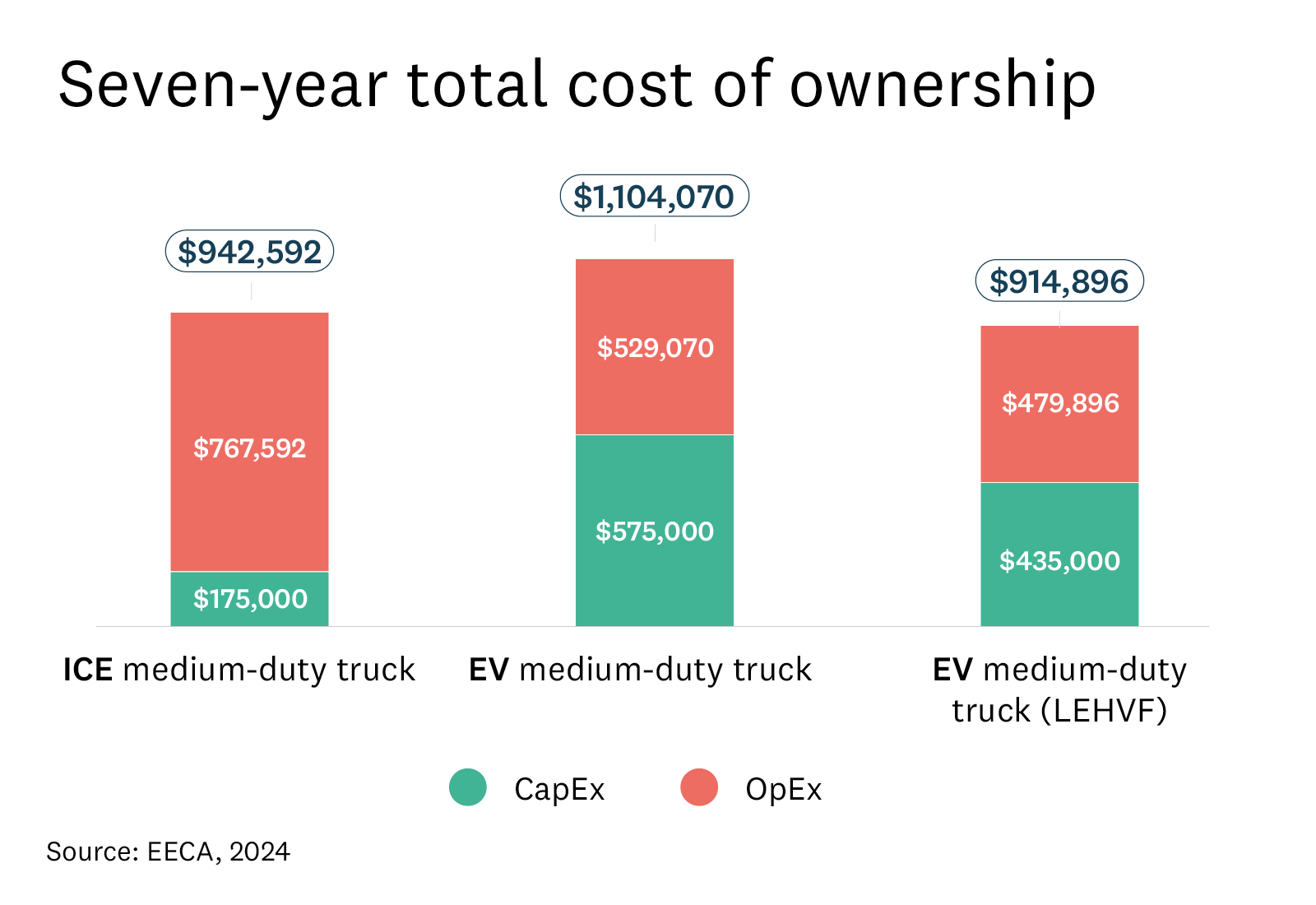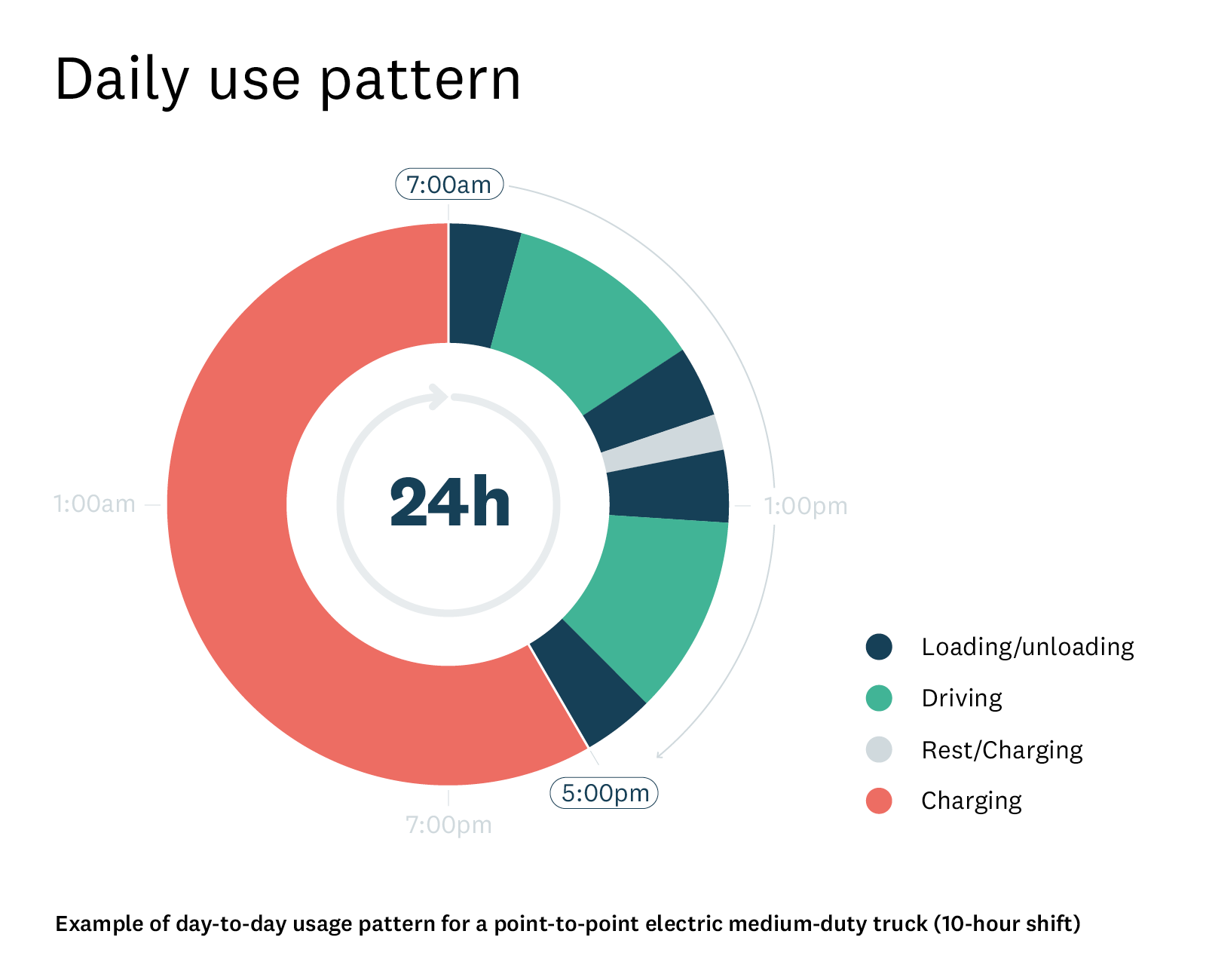Battery electric, medium-duty* trucks have arrived in New Zealand. Reliance Transport was first to adopt them into its fleet.
These trucks significantly reduce Reliance’s carbon footprint, offer substantial operational savings, and position the company as a leader in electric trucking.
This case study looks at the business feasibility and emissions reductions potential of using electric medium-duty trucks for point-to-point transportation within Auckland.
*We define medium-duty as over 18 tonne gross vehicle mass (GVM), up to 39 tonne gross combination mass (GCM).
Project summary
Project: Scania battery electric trucks
Location: Auckland
Timeline: 2022
Vehicles trialled: Two Scania 25P electric trucks
In 2022, South Auckland's Reliance Transport added the country's first two battery electric Scania trucks to its fleet. The acquisition was made possible with co-funding from EECA's Low Emission Transport Fund (formerly the Low Emission Vehicles Contestable Fund).
The Scania trucks have a GCM of 29 tonnes. With a range of up to 180km, they are well-suited for short to medium haul journeys.
Savings achieved
- 75 %
Reduction in energy costs (diesel vs electricity)
- 30 %
Reduction in maintenance costs
- 91 %
Reduction in emissions
About the Scania 25P electric truck
These battery electric trucks can be equipped with either five or nine batteries, offering 165kWh or 300kWh of capacity. The absence of a combustion engine provides space for the batteries, with additional batteries mounted on the chassis frame.
An electric motor provides 230kW (about 310hp) of continuous power and two gears for high power across a wide speed range.
Reliance’s electric trucks in action
The electric trucks are mainly used for point-to-point container and freight transport within Auckland, moving containers and steel products across the city's port and freight networks.
Since the trucks spend a lot of time stationary while loading and unloading, they don’t need a long operational range. They typically travel 120 to 180 km daily, operating between Reliance Transport depots and various container terminals and customer sites around the Auckland region.
The trucks have proved to have significantly lower running costs than a diesel equivalent, averaging $0.16c per kilometre. In the first six months of use, the two trucks reduced Reliance Transport’s emissions by 16,450kg of CO2e. These reductions in operating costs and emissions have been aided by the installation of onsite solar at their Wiri depot, helping to reduce the cost and emissions factor of their electricity.
Charging the trucks
To charge the trucks, Reliance uses a 120kW fast DC charger at their Onehunga depot and a 40kW fast DC charger at their Wiri depot. Drivers use these chargers during their 30-minute breaks, with the 120kW charger boosting the battery by about 40%. In the future, Reliance plans to install 120kW chargers at both depots, enabling the potential for double-shift operations with full charges in under two hours between shifts.
Seven-year total cost of ownership comparison
The seven-year total cost of ownership (TCO) for an electric medium-duty truck is 17% higher than for a diesel equivalent, mainly due to the high purchase cost. While the initial cost to purchase an electric truck is substantially higher, lower fuel and maintenance costs result in savings over time.
The Low Emissions Heavy Vehicle Fund (LEHVF) can help to reduce this upfront cost by up to $90,000, making the EV’s seven-year TCO nearly 3% cheaper than a diesel equivalent.

TCO assumptions
Customers are starting to get a better understanding of scope 3 emissions, and the role that transport plays in it. They’re going to start looking for cleaner transport options.
Reliance’s electric future
Reliance Transport is committed to reducing its emissions and becoming a net-zero company.
General Manager Mark Darrah views decarbonisation as a major opportunity. As organisations increasingly start to look to reduce emissions across their entire value chain, freight companies that offer low-emissions options will get an edge on their competitors.
The company is quickly progressing on its decarbonisation journey. It is scaling up its solar micro-grid to deliver 300kWh of 100% clean solar energy to its trucks, reducing both emissions and electricity costs.
It is also expanding the capacity of its electrical infrastructure to support faster charging technologies, such as the megawatt charging standard (MCS), which will significantly shorten charging times for future electric trucks.
Following this successful trial, the company plans to expand its electric fleet, including adding heavier electric trucks capable of transporting more freight over longer distances as the technology advances.
Funding now available for electric trucks
Grants from EECA’s Low Emissions Heavy Vehicle Fund (LEHVF) will cover up to 25% of the purchase price of new zero- and low-emissions heavy vehicles, or up to 25% of the cost to convert an existing, recently registered, diesel truck.
Read next
-
Electric machines stack up for Reliance Transport
Reliance Transport is growing its electric fleet, adopting an electric reach stacker into its ranks.
- Electric vehicles
- Decarbonisation
- Case study
-
Charging forward: trialling battery electric trucks in your fleet
Information for businesses considering investing in zero-emissions heavy vehicles.
- Co-funding
- Electric vehicles
- Decarbonisation
-
Hydrogen haulers: how heavy transport is lowering its emissions
Two New Zealand companies are trialling different hydrogen technologies in an effort to lower transport emissions.
- Case study
- Hydrogen
- Co-funding

